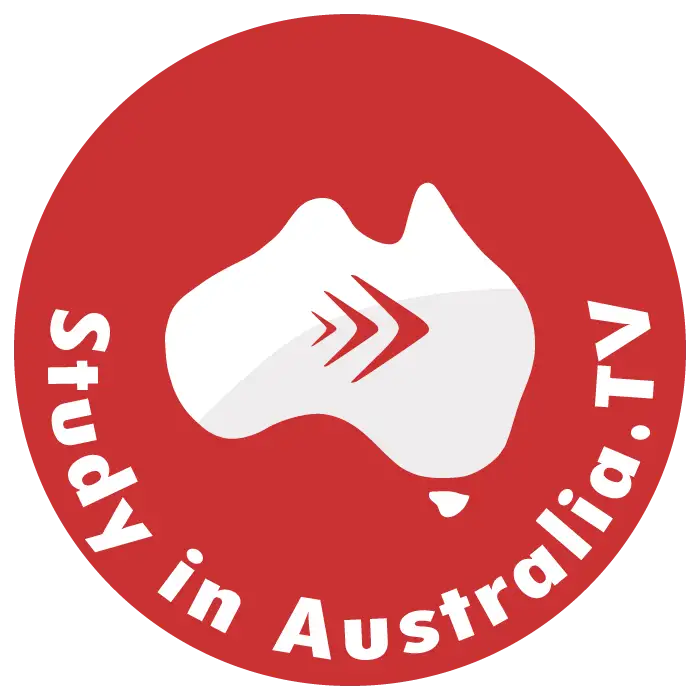Ufficiale dell'immigrazione (ANZSCO 599512)
Immigrare in Australia è un sogno per molte persone che cercano migliori opportunità e un'elevata qualità della vita. Tuttavia, il processo di immigrazione può essere complesso e richiede un’attenta pianificazione e preparazione. Questo articolo funge da guida completa all'immigrazione in Australia, fornendo informazioni dettagliate sul processo di richiesta, sulle opzioni per il visto e sui requisiti di ammissibilità. Che tu stia considerando l'immigrazione qualificata, la sponsorizzazione familiare o l'innovazione aziendale, questo articolo ti aiuterà a orientarti nel processo di immigrazione e a prendere decisioni informate.
Comprendere il processo di immigrazione
Il processo di immigrazione in Australia prevede molteplici passaggi e richiede un'attenta considerazione. I candidati devono comprendere il processo per garantire un'applicazione agevole e di successo. Ecco i passaggi chiave coinvolti nel processo di immigrazione:
- Ricerca e pianificazione
- Valutazione di idoneità
- Raccolta dei documenti richiesti
- Presentazione della domanda
- Valutazioni mediche e caratteriali
- Decisione e concessione del visto
Prima di iniziare il processo di immigrazione, è essenziale condurre una ricerca approfondita sulle politiche di immigrazione dell'Australia, sulle opzioni di visto e sui requisiti di ammissibilità. Questa ricerca ti aiuterà a determinare il percorso di visto più adatto alle tue circostanze.
Una volta individuato il percorso per il visto, devi valutare la tua idoneità in base ai requisiti specifici delineati dal governo australiano. Ogni categoria di visto ha criteri diversi relativi a età, competenze, qualifiche, esperienza lavorativa e conoscenza della lingua inglese.
Dopo aver determinato la tua idoneità, devi raccogliere i documenti necessari a supporto della tua richiesta di visto. Questi documenti possono includere certificati di studio, documenti di lavoro, rendiconti finanziari, documenti di identità e prove della conoscenza della lingua inglese.
Una volta raccolti tutti i documenti richiesti, puoi procedere alla presentazione della domanda di visto. La domanda può essere presentata online attraverso il sito ufficiale del Dipartimento degli Affari Interni. È fondamentale fornire informazioni accurate e complete per evitare ritardi o rifiuti.
Come parte del processo di immigrazione, ti verrà richiesto di sottoporti a esami medici e di fornire autorizzazioni caratteriali. Queste valutazioni garantiscono che tu soddisfi i requisiti di salute e carattere stabiliti dal governo australiano.
Dopo aver inviato la domanda, questa verrà valutata dal Dipartimento degli affari interni. Il tempo di elaborazione varia a seconda della categoria del visto e delle circostanze individuali. Una volta presa la decisione, ti verrà comunicato l'esito e, in caso di esito positivo, ti verrà concesso il visto.
Opzioni di visto per l'immigrazione in Australia
L'Australia offre una gamma di opzioni di visto per le persone che desiderano immigrare nel paese. Le categorie di visti sono progettate per soddisfare diverse circostanze ed esigenze. Ecco alcune delle principali opzioni di visto per l'immigrazione in Australia:
Migrazione qualificata
- Visto indipendente qualificato (sottoclasse 189): questo visto è per lavoratori qualificati che non sono sponsorizzati da un datore di lavoro, stato o territorio. Consente alle persone di vivere e lavorare permanentemente ovunque in Australia.
- Visto nominato per competenze (sottoclasse 190): questo visto richiede la nomina da parte del governo di uno stato o territorio. Fornisce la residenza permanente ai lavoratori qualificati disposti a vivere e lavorare in uno stato o territorio specifico.
- Visto regionale (provvisorio) per lavori qualificati (sottoclasse 491): questo visto è per lavoratori qualificati nominati dal governo di uno stato o territorio o sponsorizzati da un familiare idoneo residente in un'area regionale designata. Fornisce un percorso verso la residenza permanente dopo un certo periodo.
Sponsorizzazione familiare
- Visto partner (sottoclassi 820 e 801): questo visto consente alle persone di unirsi al proprio partner o coniuge australiano. Richiede una relazione genuina e continuativa.
- Visto per genitori (sottoclassi 103, 143, 173, 804 e 864): questi visti sono per genitori di cittadini australiani, residenti permanenti o cittadini neozelandesi idonei. Consentono ai genitori di vivere in Australia temporaneamente o permanentemente.
- Visto per bambini (sottoclassi 101, 102, 445 e 802): questi visti sono per figli a carico di cittadini australiani, residenti permanenti o cittadini neozelandesi idonei. Consentono ai bambini di vivere in Australia temporaneamente o permanentemente.
Programma di innovazione e investimenti aziendali
- Visto (provvisorio) per innovazione e investimenti aziendali (sottoclasse 188): questo visto è rivolto a persone che desiderano avviare, sviluppare o gestire un'attività nuova o esistente in Australia. Richiede la nomina da parte del governo di uno stato o territorio.
- Visto per talenti aziendali (permanente) (sottoclasse 132): questo visto è rivolto a titolari di aziende o imprenditori di alto livello che desiderano investire in unattività nuove o esistenti in Australia. Richiede la nomina da parte del governo di uno stato o territorio o di Austrade.
Nomina Stato e Territorio
- Ogni stato e territorio australiano ha il proprio programma di nomina, che consente di nominare lavoratori qualificati che soddisfano i loro requisiti specifici. Questi programmi sono in linea con le categorie di visti per immigrazione qualificata e forniscono punti aggiuntivi ed elaborazione prioritaria.
Migrazione qualificata
La migrazione qualificata è uno dei percorsi più comuni per le persone che cercano di immigrare in Australia. È progettato per affrontare la carenza di competenze nel paese e attrarre professionisti altamente qualificati. Ecco una panoramica del processo di migrazione qualificato:
Valutazione delle competenze
Prima di richiedere un visto per migrazione qualificata, i richiedenti devono sottoporsi a una valutazione delle competenze da parte di un'autorità di valutazione competente. L'autorità di valutazione valuta le qualifiche, l'esperienza lavorativa e le competenze del candidato per garantire che soddisfino gli standard richiesti per l'occupazione nominata.
Espressione di interesse (EOI)
Dopo aver ottenuto una valutazione positiva delle competenze, i candidati devono inviare un'espressione di interesse (EOI) tramite il sistema SkillSelect. L'EOI fornisce informazioni sulle competenze, qualifiche ed esperienza lavorativa del candidato. Indica anche la sottoclasse del visto a cui sono interessati.
Test punti
I visti per migrazione qualificata sono soggetti a test a punti, il che significa che i richiedenti devono raggiungere una soglia minima di punti per essere idonei. I punti vengono assegnati in base a fattori quali età, conoscenza della lingua inglese, qualifiche, esperienza lavorativa e altri criteri pertinenti.
Invito a presentare domanda
Una volta inviata un'EOI, i richiedenti possono essere invitati a richiedere un visto per migrazione qualificata se soddisfano il requisito minimo di punti e la loro occupazione è richiesta. Gli inviti vengono emessi periodicamente in base al numero di posti per visti disponibili e agli EOI di grado più alto.
Richiesta di visto
Dopo aver ricevuto un invito, i richiedenti hanno un periodo specifico per presentare la domanda di visto. La domanda deve includere tutti i documenti richiesti, come documenti di identità, risultati della valutazione delle competenze, risultati dei test di lingua inglese e autorizzazioni sanitarie e caratteriali.
Decisione e concessione del visto
Il Dipartimento degli Affari Interni valuta la richiesta di visto e prende una decisione. Se la domanda viene approvata, al richiedente verrà concesso un visto per vivere e lavorare in Australia. Il visto può essere concesso per un periodo temporaneo o permanente, a seconda della sottoclasse.
È importante notare che il processo di migrazione qualificato può essere competitivo e il rispetto dei requisiti minimi non garantisce un invito o l'approvazione del visto. I candidati con punti più alti e occupazioni molto richieste hanno maggiori possibilità di successo.
Sponsorizzazione familiare
La sponsorizzazione familiare è un percorso per le persone che hanno familiari stretti che vivono in Australia. Permette loro di ricongiungersi ai propri familiari e vivere nel paese in modo permanente o temporaneo. Ecco le principali opzioni di visto per sponsorizzazione familiare:
Visto partner
Il visto partner consente alle persone di unirsi al proprio partner o coniuge australiano. È disponibile per le persone che hanno rapporti autentici e continuativi con cittadini australiani, residenti permanenti o cittadini neozelandesi idonei. Il visto viene concesso in due fasi: temporaneo e permanente.
Visto dei genitori
I visti per genitori sono destinati ai genitori di cittadini australiani, residenti permanenti o cittadini neozelandesi idonei. Sono disponibili più sottoclassi, tra cui il visto per genitori contribuenti e il visto per genitori invecchiati. Questi visti consentono ai genitori di vivere in Australia temporaneamente o permanentemente.
Visto per bambini
I visti per bambini sono destinati ai figli a carico di cittadini australiani, residenti permanenti o cittadini neozelandesi idonei. Il visto consente ai bambini di vivere in Australia temporaneamente o permanentemente, a seconda della sottoclasse.
I visti di sponsorizzazione familiare richiedono la sponsorizzazione da parte di un membro della famiglia idoneo e il rispetto di requisiti specifici relativi alla relazione, all'età e alla dipendenza.
Programma di innovazione e investimenti aziendali
Il Business Innovation and Investment Program (BIIP) è progettato per attirare imprenditori, imprenditori e investitori in Australia. Offre una gamma di opzioni di visto per le persone interessate a stabilire, sviluppare o gestire un'impresa nel paese. Ecco le principali opzioni di visto nell'ambito del BIIP:
Visto (provvisorio) per innovazione aziendale e investimenti (sottoclasse 188)
Questo visto è rivolto a persone che desiderano avviare, sviluppare o gestire un'attività nuova o esistente in Australia. Richiede la nomina da parte del governo di uno stato o territorio e viene concesso per un periodo provvisorio.
Visto per talenti aziendali (permanente) (sottoclasse 132)
Questo visto è per persone di alto calibrotitolari di aziende o imprenditori disposti a investire in un'attività nuova o esistente in Australia. Richiede la nomina da parte del governo di uno stato o territorio o di Austrade e fornisce la residenza permanente.
Il BIIP offre percorsi per individui con background aziendali e capacità di investimento diversi. Ciascuna sottoclasse di visto presenta requisiti specifici relativi a fondi di investimento, esperienza commerciale e piani aziendali.
Nomina Stato e Territorio
I governi degli stati e dei territori in Australia hanno i propri programmi di nomina, che consentono loro di nominare lavoratori qualificati che soddisfano i loro requisiti specifici. La nomina di stati e territori può fornire punti aggiuntivi e un'elaborazione prioritaria per le domande di visto di migrazione qualificate. Ecco gli aspetti chiave della nomina di stati e territori:
Criteri di idoneità
Ogni stato e territorio ha i propri criteri di ammissibilità per la nomina. Questi criteri possono includere elenchi di occupazioni, requisiti minimi di punteggio, esperienza lavorativa, conoscenza della lingua inglese e impegno a vivere e lavorare nello stato o nel territorio.
Elenchi di occupazioni
I governi degli stati e dei territori mantengono i propri elenchi di occupazioni, noti come elenchi di occupazioni nominate dallo stato. Questi elenchi specificano le occupazioni richieste nel rispettivo stato o territorio.
Punti aggiuntivi
La nomina di stati e territori può fornire punti aggiuntivi per il test dei punti, aumentando le possibilità di ricevere un invito a richiedere un visto di migrazione qualificato.
Processo di candidatura
La procedura di richiesta per la nomina di stati e territori varia a seconda dello stato o del territorio. Generalmente comporta l'invio di una manifestazione di interesse, il rispetto dei requisiti di idoneità e la ricezione di un invito a presentare domanda per la nomina.
La nomina a stato e territorio è un'opzione eccellente per le persone che possiedono competenze e qualifiche specifiche necessarie in un particolare stato o territorio. Consente ai richiedenti di aumentare le loro possibilità di ricevere un invito e accelera i tempi di elaborazione del visto.
Requisiti di idoneità per l'immigrazione
I requisiti di idoneità per l'immigrazione in Australia variano in base alla categoria del visto e alle circostanze individuali. Ecco alcuni requisiti di idoneità comuni da considerare:
Età
La maggior parte delle categorie di visti hanno limiti di età. Per la migrazione qualificata, il limite di età è in genere di 45 anni o inferiore, sebbene possano essere applicate alcune esenzioni.
Competenze e qualifiche
I visti per migrazione qualificata richiedono che i richiedenti possiedano competenze e qualifiche pertinenti all'occupazione nominata. Di solito è necessaria una valutazione positiva delle competenze da parte di un'autorità di valutazione competente.
Esperienza lavorativa
I visti per migrazione qualificata spesso richiedono un periodo minimo di esperienza lavorativa rilevante. L'esperienza deve riguardare l'occupazione nominata o un campo strettamente correlato.
Conoscenza della lingua inglese
I candidati devono dimostrare la conoscenza della lingua inglese attraverso test linguistici riconosciuti, come IELTS o PTE. Il punteggio richiesto varia a seconda della categoria del visto e dell'occupazione.
Requisiti di salute e carattere
Tutti i richiedenti il visto devono soddisfare requisiti di salute e carattere. Ciò comporta il sottoporsi a visite mediche e il rilascio di nulla osta di polizia da tutti i paesi in cui si risiede per un certo periodo.
Capacità finanziaria
Alcune categorie di visti, come i visti per l'innovazione aziendale e gli investimenti, richiedono che le persone dimostrino la propria capacità finanziaria per stabilire o investire in un'impresa in Australia.
È essenziale rivedere attentamente i requisiti di ammissibilità specifici per la categoria di visto prescelta e, se necessario, richiedere una consulenza professionale. Il rispetto dei requisiti minimi non garantisce il successo della domanda di visto, poiché anche altri fattori, come la domanda e le quote di visto, possono influenzare l'esito.
Requisiti dei documenti
Quando richiedono un visto australiano, i richiedenti devono fornire documenti giustificativi per dimostrare la loro idoneità e soddisfare i requisiti per il visto. I requisiti specifici dei documenti variano a seconda della categoria del visto e delle circostanze individuali. Ecco alcuni documenti comuni spesso richiesti per le domande di visto:
Documenti di identità
Questi includono un passaporto valido, un certificato di nascita e una carta d'identità nazionale.
Documenti didattici
In genere sono richiesti trascrizioni accademiche, diplomi, titoli e qualifiche pertinenti all'occupazione nominata. È essenziale fornire copie autenticate o documenti originali.
Documenti sull'esperienza lavorativa
Curriculum, contratti di lavoro, lettere di referenza e buste paga possono essere utilizzati per dimostrare l'esperienza lavorativa nell'occupazione nominata.
Conoscenza della lingua inglese
I risultati dei test di lingua, come i punteggi IELTS o PTE, lo sonorichiesto per dimostrare la conoscenza della lingua inglese.
Autorizzazioni di salute e carattere
I candidati devono sottoporsi a visite mediche condotte da medici esperti approvati dal Dipartimento degli affari interni. Sono inoltre richiesti i nulla osta di polizia di tutti i paesi in cui si è risieduto per un certo periodo.
Bilancio
I visti per innovazione aziendale e investimenti possono richiedere rendiconti finanziari, piani aziendali e prove di fondi di investimento.
È fondamentale fornire informazioni accurate e complete e garantire che tutti i documenti siano autentici e soddisfino i requisiti specifici delineati dal Dipartimento degli affari interni. La mancata fornitura dei documenti richiesti può comportare ritardi o rifiuto del visto.
Elenco di priorità delle competenze (SPL)
La Skills Priority List (SPL) è un elenco completo delle occupazioni richieste in Australia. Identifica le occupazioni che affrontano carenze di competenze e fornisce informazioni sulle esigenze economiche e di forza lavoro del paese. L'SPL viene aggiornato annualmente da Jobs and Skills Australia, tenendo conto di vari fattori come le tendenze del settore, l'analisi del mercato del lavoro e la consultazione con le parti interessate.
La SPL classifica le occupazioni in base alla domanda e alla priorità, indicando se si trovano ad affrontare una carenza (S), non presentano alcuna carenza (NS) o presentano una carenza regionale (R). L'elenco è progettato per guidare le decisioni politiche, l'assegnazione dei visti e i programmi di nomina a stati e territori.
La SPL è una risorsa essenziale per le persone che intendono immigrare in Australia. Li aiuta a identificare le occupazioni con maggiori possibilità di ricevere inviti e approvazioni di visti. Scegliendo le occupazioni nell'SPL, i candidati possono allineare le proprie competenze e qualifiche alle esigenze della forza lavoro australiana, aumentando le possibilità di successo.
Conclusione
Immigrare in Australia offre numerose opportunità per le persone che cercano una migliore qualità della vita, avanzamento di carriera e crescita personale. Tuttavia, il processo di immigrazione può essere complesso e richiede un’attenta pianificazione e preparazione. Questa guida completa ha fornito informazioni dettagliate sul processo di immigrazione, sulle opzioni di visto, sui requisiti di ammissibilità e sui requisiti dei documenti.
Comprendendo il processo di immigrazione e conducendo ricerche approfondite, le persone possono prendere decisioni informate e aumentare le possibilità di ottenere una richiesta di visto con successo. Si consiglia vivamente di chiedere consulenza professionale ad agenti di immigrazione registrati o avvocati specializzati in immigrazione per affrontare le complessità del sistema di immigrazione.
Ricorda che le politiche e i requisiti sull'immigrazione sono soggetti a modifiche ed è essenziale rimanere aggiornati con le informazioni più recenti del Dipartimento degli affari interni e dei governi statali e territoriali competenti.
Con una pianificazione, una preparazione e una guida adeguate, le persone possono realizzare il sogno di immigrare in Australia e godere delle numerose opportunità e vantaggi che il paese ha da offrire.
599512: Immigration Officer
Current Demand / Future Demand
No invitations were given
Possible Visa Options
| Visa Type | Eligibility | Caveats / Mandatory Assessment | Legislative Instrument | MLTSSL | STSOL | ROL |
|---|---|---|---|---|---|---|
| 189Skilled Independent | LIN 19/051 | |||||
| 190Skilled Nominated | LIN 19/051 | |||||
| 491Skilled Work Regional | LIN 19/051 | |||||
| 491FFamily Sponsored | LIN 19/051 | |||||
| 485Stream: Graduate Work | LIN 19/051 | |||||
| 482TSS: Medium & Short term | LIN 19/048 | |||||
| DAMALabour Agreement | ||||||
| 186ENS: TRT & DE | LIN 19/049 | |||||
| 187RSMS: TRT | LIN 19/047 | |||||
| 494SESR: Employer Sponsored | LIN 19/219 LIN 19/260 | |||||
| 407Training: Enhance Skills | LIN 19/050 |
State/Territory Eligibility Summary Table
- Occupation is IN the State/Territory Skilled Occupation List and MAY be eligible if you meet the specific State/Territory nomination requirements
- Occupation is IN the Skilled List (MLTSSL, STSOL or ROL list) and MAY be eligible if you meet the State/Territory nomination requirements
- Occupation MAY NOT be eligible
- Stream NOT applicable to the visa Subclass
- Migration Program currently CLOSED
State/Territory Eligibility Details
Australian Capital Territory
ACT Critical Skills List
599512: Immigration Officer
| Subclass 190 | Subclass 491 | Nomination places available per month |
|---|---|---|
General Requirements
Candidates must register their interest in ACT nomination by completing a score-based Canberra Matrix
Candidates may be nominated under four streams:
- Canberra Residents
- Overseas Applicants
- Doctorate Streamlined nomination
- Significant economic benefit
Requirements for Canberra Residents
Candidates applying for Subclass 190 nomination must:
- Have an occupation on the ACT Critical Skills List; or be the primary holder of a 457/482 visa sponsored by an ACT employer for the last 6 months; or be the majority owner of an eligible ACT business claiming Matrix points in the Small Business Owner category.
- Have lived in Canberra for the last 6 months and continue until invitation.
- Have worked in Canberra for at least 26 weeks (overall hourly and/or earnings requirements apply).
- Have ‘Proficient’ or ‘Superior’ English (ANZSCO 351311 Chef, and ANZSCO skill level 3 to 5 are exempt).
Candidates applying for Subclass 491 nomination must:
- Have an occupation on the ACT Critical Skills List; or be the primary holder of a 457/482 visa sponsored by an ACT employer for the last 3 months; or be the majority owner of an eligible ACT business claiming Matrix points in the Small Business Owner category.
- Have lived in Canberra for the last 3 months and continue until invitation.
- Have worked in Canberra for at least 13 weeks (overall hourly and/or earnings requirements apply).
- Have ‘Competent’ English.
Requirements for Overseas Applicants
Candidates applying for Subclass 190 nomination must:
- Have an occupation on the ACT Critical Skills List.
- Have at least three years full time, post graduate relevant work experience in your nominated occupation in the last five years.
- Have researched the ACT labour market and be satisfied with being employable in Canberra.
- Have ‘Proficient’ or ‘Superior’ English (ANZSCO 351311 Chef, and ANZSCO skill level 3 to 5 are exempt).
- Be living overseas and have not lived in Australia for the last 12 months.
- Have access to sufficient settlement funds.
Candidates applying for Subclass 491 nomination must:
- Have an occupation on the ACT Critical Skills List.
- Have at least one year full time, post graduate relevant work experience in your nominated occupation in the last five years.
- Have researched the ACT labour market and be satisfied with being employable in Canberra.
- Have ‘Competent’ English.
- Be living overseas and have not lived in Australia for the last 12 months.
- Have access to sufficient settlement funds.
Doctorate Streamlined nomination
Candidates must:
- Have lived in Canberra for the last 12 months (interstate and overseas residents may be eligible if they completed their doctoral degree from an ACT within the last two years).
- Have completed a professional or research doctoral degree at an ACT university.
Significant economic benefit
- Invitation can ONLY be initiated by the ACT government.
New South Wales
Subclass 190 Basic Eligibility criteria
- Have an occupation on the Department’s relevant Skilled List (MLTSSL, STSOL or ROL).
- Candidates must be currently residing in NSW or Offshore and have continuously done so for a minimum of 6 months.
- Have submitted an EOI seeking Subclass 190 nomination for NSW only
NSW Target Sectors
To more effectively respond to changing skills shortages across the state, NSW is transitioning from the publication of an eligible ANZSCO skilled list to adopting a sector-focused approach.
The sectors identified as experiencing critical skills shortages in NSW include:
- Health
- Education
- Information and Communication Technology (ICT)
- Infrastructure
- Agriculture
Important: Although NSW prioritizes target sectors, high-ranking EOIs submitted in non-priority sectors may also be considered. However, it's important to understand that the chances of receiving an invitation are exceptionally low due to high demand and limited spots.
Subclass 491 Basic Eligibility criteria
Candidates may be nominated under two pathways:
- Pathway 1 – Apply directly to an RDA office (see participating regions below).
- Stream A - Established work history with a regional NSW-based employer
- Stream B - My skills are required in regional NSW
- Pathway 2 – Be invited by Investment NSW.
Requirements for Pathway 1 - Stream A
- Candidates must have an eligible occupation.
- Candidates must be currently living and working in a designated regional area of NSW and have continuously done so for the past 12 months.
- The qualifying employment must be in the nominated (or closely related) occupation, with the same employer, deemed skilled by NSW and paid a minimum of $53,900 (pro-rated if under 38 hours/week).
Requirements for Pathway 1 - Stream B
- Candidates must have an eligible occupation within an ANZSCO on the NSW Skills Lists (Pathway 1 - Stream B).
- Candidates must be currently residing in NSW or Offshore and have continuously done so for a minimum of 3 months.
Requirements for Pathway 2
- Candidates must have an eligible occupation within an ANZSCO on the NSW Skills Lists (Pathway 2)
- Candidates must be currently residing in NSW or Offshore and have continuously done so for a minimum of 3 months.
Participating regions for Pathway 1 are:
- RDA Central Coast
- RDA Central West
- RDA Far South Coast
- RDA Far West
- RDA Hunter
- RDA Illawarra
- RDA Mid North Coast
- RDA Murray
- RDA Northern Inland
- RDA Northern Rivers
- RDA Orana
- RDA Riverina
- RDA Southern Inland
- RDA Sydney
Northern Territory
General Requirements
Candidates may be nominated under three streams/pathways:
Requirements for NT Residents
Candidates must:
- Have been residing in the NT for at least 12 consecutive months, with no migrating dependants residing in another part of Australia.
- Demonstrate full-time employment in the NT in an eligible occupation (i.e., nominated occupation or related to it) for at least 6 consecutive months immediately before applying (the employment must be available for at least 12 months). If the occupation is not “an eligible occupation”, a candidate may exceptionally still be considered if employed in health, aged or disabled care, education (incl. childcare), and hospitality.
- Demonstrate that the position is based in the NT (serviced office spaced or hot desking generally not accepted) and the employer has been training for at least 12 months in the NT.
Requirements for Offshore Applicants
Candidates must:
- Have post-qualification work experience of at least 1 year in the nominated occupation (additional work experience may be required under the priority occupations stream).
- Demonstrate a genuine commitment to live and work in NT.
- Provide evidence of financial capacity.
- Meet the criteria relevant to one of the 3 streams:
- Have an occupation on the Northern Territory Offshore Migration Occupation List (NTOMOL).
- Meet any additional work experience required as specified on the NTOMOL. Please, see below:
- Have an eligible family member in the NT who is a usual resident and has lived in the NT for at least 12 months. This person must be an Australian citizen, a permanent resident, or an Eligible New Zealand citizen or hold an eligible visa (Subclass 491, 494, 489 or a bridging visa associated with an application for a Subclass 887 or 191 visa). The eligible relative must confirm their willingness to provide settlement support.
- Demonstrate genuine and sustained efforts to obtain employment from an NT employer.
- Have a job offer in the nominated occupation in an NT business that has been actively operating in the NT for at least 12 months.
Priority occupation stream
NT Offshore Migration Occupations List (NTOMOL)
599512: Immigration Officer
| Subclass 190 | Subclass 491 | Comments |
|---|---|---|
NT Family stream
NT Job Offer stream
NT Graduates
Candidates must:
- Have completed two years of study in the NT.
- Have completed one or more qualifications at an NT-based institution in a single tertiary course or a set of nested tertiary courses.
- Demonstrate genuine and sustained efforts to obtain employment from an NT employer in the nominated occupation.
Candidates who:
- hold a Graduate (Subclass 485) visa that expires after 1 July 2024 or who are eligible to apply for a Graduate (Subclass 485) visa, are unlikely to be offered a nomination in this program year.
- are working in their nominated occupations or in critical sectors (healthcare, education and hospitality) would be prioritised.
Queensland
2023-24 Queensland Skilled Migration Program
599512: Immigration Officer
| Type | Subclass 190 | Subclass 491 | Minimum post-qualification work experience requirement |
|---|---|---|---|
| Offshore candidates (QSOL list) | |||
| Living in QLD (Skilled List) |
General Requirements
Candidates may be nominated under four streams:
- Skilled workers living in QLD
- Skilled workers living Offshore
- Graduates of a QLD University
- Small Business Owners in regional QLD
Requirements for 'Skilled workers living in QLD'
Candidates must:
- Have a points-test result of 75 or higher for Subclass 190 (except for Trades occupations, which require 70 or higher) or, 65 or higher for Subclass 491.
- Have an occupation on the Department’s relevant Skilled List (MLTSSL, STSOL or ROL).
- Have Competent English or higher (6.0 on IELTS / 50 on PTE).
- Have been living in QLD (regional for Subclass 491), undertaking full-time post-qualification employment (30 hrs/week) in the nominated occupation for ‘3 months immediately before EOI lodgement’ for Subclass 190 or, ‘at the time of your EOI lodgement’ for Subclass 491.
- Provide evidence of ongoing full-time employment in QLD for a further 12 months for Subclass 190 or, 6 months for Subclass 491 (virtual office is not accepted).
Requirements for 'Skilled workers living Offshore'
Candidates must:
- Have a points-test result of 75 or higher for Subclass 190 (except for Trades occupations, which require 70 or higher) or, 65 or higher for Subclass 491.
- Have an eligible occupation on the ‘Queensland Skilled Occupation List’ (QSOL).
- Have Competent English or higher (6.0 on IELTS / 50 on PTE).
- Provide evidence of the required years of post-study work experience as per the QSOL and be employed in the nominated occupation when invited.
Skilled workers living Offshore
Requirements for 'Graduates of a QLD university'
Candidates must:
- Have a points-test result of 75 or higher for Subclass 190 or, 65 or higher for Subclass 491.
- Have an occupation on the Department’s relevant Skilled List (MLTSSL, STSOL or ROL).
- Be living in Queensland (regional for Subclass 491).
- Have Competent English or higher (6.0 on IELTS / 50 PTE).
- Have completed 100% of their studies in Queensland and graduated in the last two years.
- Meet the additional criteria for their qualification level as indicated below.
PhD or Doctorate Graduates (190 and 491) must:
- Have had a positive decision on their thesis.
Master’s Graduates in STEM or Agriculture fields (190 and 491) must:
- Be employed full-time (30 hrs/week) in the nominated occupation (or ANZSCO Skill Level 1).
Master’s Graduates - not in STEM or Agriculture fields (190 and 491) must:
- Be employed full-time (30 hrs/week) in the nominated occupation (or ANZSCO Skill Level 1).
- Have a grade point average of 6.0 or higher for Subclass 190 or 5.0 for Subclass 491.
Bachelor’s Graduates (190 and 491) must:
- Be employed full-time (30 hrs/week) in the nominated occupation (or ANZSCO Skill Level 1).
- Have a grade point average of 6.0 or higher for Subclass 190 or 5.0 for Subclass 491.
Requirements for 'Small business owners in regional QLD'
Candidates must:
- Have an occupation on the Department’s relevant Skilled List (MLTSSL, STSOL or ROL).
- Have full-time work rights and not currently be studying.
- Be living in regional Queensland.
- Be working for the business full-time (30 hrs/week)
- Have 100% ownership of the business.
- Own and operate a business in regional Queensland.
- Meet the criteria for Pathway 1 or Pathway 2 as indicated below.
Pathway 1
- Have purchased an existing business for a minimum of $100,000.
- The business must be a pre-existing business (operating for a minimum of 2 years) trading for a minimum of six months prior to lodging an Expression of Interest (EOI).
- The business must employ at least one Australian resident (20 hrs/week) or two employees working 10 hrs/week.
Pathway 2
- Have started a business and have continuously run that business for a minimum of two years. Must be generating a profit and have a turnover of $200,000 in the 12 months prior to application.
Small Business Owners in regional QLD
South Australia
599512: Immigration Officer
2023-24 South Australia's Skilled Occupation List
| Stream | Subclass 190 | Subclass 491 | Minimum Points |
|---|---|---|---|
| Graduates | |||
| Working in South Australia | |||
| Highly Skilled & Talented | |||
| Offshore |
General Requirements
To be selected to apply for State nomination, most candidates must complete and submit a Registration of Interest (ROI) for South Australia via their Migration portal.
Candidates may be nominated under four streams:
Requirements for 'South Australian Graduates'
Candidates must:
- Have an occupation under the Graduate stream on South Australia’s Skilled Occupation list.
- Currently live and work in South Australia.
- Have at least Competent English.
- Have completed their qualification at a South Australian education. The course must be CRICOS registered with a minimum of 46 CRICOS weeks and meet the minimum qualification level listed for the occupation on South Australia’s Skilled Occupation list. At least 50% of the qualification must have been completed in SA, and the candidate must have resided in the State for at least 1 year during their studies.
- Have been residing in South Australia for at least the last 12 months.
- Have been working for the last 6 months and be currently employed (at least 30 hr/week). Employment must be related to the nominated occupation.
Requirements for 'Working in South Australia'
Candidates must:
- Have an occupation under the Working in SA stream on South Australia’s Skilled Occupation list.
- Currently live and work in South Australia.
- Have at least Competent English.
- Have been residing in South Australia for at least the last 12 months.
- Have been working for the last 6 months and be currently employed (at least 30 hr/week). Employment must be related to the nominated occupation.
Requirements for 'Highly Skilled and Talented'
Candidates must:
- Currently live and work in South Australia, interstate or overseas.
- Have at least Competent English.
- Meet employment requirements if working or have been offered a position in South Australia. Employer requirements include an existing business of at least 12 months, located and operating in SA for the past 12 months and with an annual turnover of at least $4 million unless an exception applies.
- Meet additional requirements if:
- Candidate with Hi-Tech or Digital industry experience, including at least 2 years of experience in one of South Australia’s critical technology professions.
- Candidate with Defence or Space industry experience, including having already commenced employment in a relevant organisation and currently working full-time in South Australia. Overseas candidates must demonstrate relevant experience and intend to relocate to South Australia.
Requirements for 'Offshore'
Candidates must:
- Currently residing offshore.
Tasmania
599512: Immigration Officer
| Occupation Lists | Eligibility | Notes & caveats |
|---|---|---|
| Critical Roles List | ||
| Tasmanian Onshore Skilled Occupation List (TOSOL) | ||
| Overseas Skilled Occupation Profiles (OSOP) |
Lists
- Critical Roles List: An occupation included in the 'Critical Roles List' will be prioritised in the Migration Tasmania Gateway.
- Tasmanian Onshore Skilled Occupation List (TOSOL): An occupation included in the TOSOL is eligible for subclass 190 nomination after 6 months employment in a closely related role. Occupations that are not on the TOSOL are eligible for subclass 190 nomination in the 'Tasmanian Skilled Employment' pathway after 15 months of related employment.
- Overseas Skilled Occupation Profiles (OSOP): An occupation included in the OSOP list is eligible for the 'Overseas Applicant (OSOP) – Invitation Only' pathway (subclass 491 only).
Pathway Eligibility
599512: Immigration Officer
| Pathway | Subclass 190 | Subclass 491 |
|---|---|---|
| Tasmanian Skilled Employment | ||
| Tasmanian Skilled Graduate | ||
| Tasmanian Established Resident | ||
| Tasmanian Business Operator | ||
| Overseas Applicant (Job Offer) | ||
| Overseas Applicant (OSOP) – Invitation Only |
- Occupation is IN the state occupation list and MAY be eligible if you meet the specific state nomination requirements
- Occupation is IN the Skilled List and MAY be eligible if you meet the state nomination requirements
- Occupation MAY NOT be eligible
- Stream NOT applicable to the visa Subclass
Victoria
Victoria’s 2023-24 Skilled Visa Nomination Program
To be selected to apply for Victorian skilled visa nomination, candidates must complete and submit a Registration of Interest (ROI) for Victorian State Visa Nomination.
All occupations included in the Skilled List(MLTSSL, STSOL or ROL list) are eligible for nomination if the candidate meets the Victoria nomination criteria.
The following occupation groups are prioritised:
- Health
- Social services
- Information Communication Technology (ICT)
- Early childhood, primary, secondary, and special education teachers
- Advanced manufacturing
- Infrastructure
- Renewable energy
- Hospitality and tourism (491 visa only)
General Requirements for 'Skilled Nominated visa (subclass 190)'
Candidates applying for Subclass 190 nomination must:
- Have an occupation on the Skilled List (MLTSSL, STSOL or ROL list).
- Have had their Registration of Interest (ROI) selected.
- If onshore, be living in Victoria at the time of nomination.
- If onshore and claiming earnings from skilled employment in the ROI, the employer must be physically located in Victoria.
- Be committed to living in Victoria.
General Requirements for 'Skilled Work Regional (Provisional) visa (subclass 491)'
Onshore Candidates must:
- Have an occupation on the Skilled List (MLTSSL, STSOL or ROL list).
- Have had their Registration of Interest (ROI) selected.
- Be living and working in skilled employment in regional Victoria at the time of nomination. Candidates who are not working, or working in non-skilled employment, are not eligible to apply for nomination.
- Be committed to living in regional Victoria.
Offshore Candidates must:
- Have an occupation on the Skilled List (MLTSSL, STSOL or ROL list). Offshore candidates for 491 visas with skills in healthcare, social services and education will be prioritised.
- Have had their Registration of Interest (ROI) selected.
- Be committed to living in regional Victoria.
Western Australia
Western Australia occupation lists (WASMOL Schedule 1 & 2, and Graduate)
599512: Immigration Officer
| Stream Type | Status | Subclass 190 | Subclass 491 | Minimum Points | Priority Occupation | Comments |
|---|---|---|---|---|---|---|
| Not Available |
General Requirements
Candidates may be nominated under two streams:
Applicants for the General stream must satisfy Schedule 1 or Schedule 2 criteria, depending on their occupation.
Schedule 1 criteria, candidates must have:
- An occupation on the WASMOL – Schedule 1 (Health & Medical Occupations).
- Competent English.
- At least one year of relevant Australian or overseas work experience.
- At least 6-months full-time contract of employment in Western Australia (only applicable for Subclass 190 visa applicants, and except for those invited through a WA building and construction industry sector occupation).
Schedule 2 criteria, candidates must have:
- An occupation on the WASMOL – Schedule 2.
- Competent English.
- At least 6-months full-time contract of employment in Western Australia (only applicable for Subclass 190 visa applicants, and except for those invited through a WA building and construction industry sector occupation).
WA Graduates must have:
- An occupation on the GOL.
- Studied at an accredited Western Australian educational institution, full-time and face-to-face, for at least two years.
- Completed a Cert. III or higher qualification in a Western Australian university, higher education provider, TAFE, registered training provider or English language provider.
- Competent English.
Migration Program Planning Levels 2023-24
State & Territory Visa Allocations 2023-24State / Territory Nominated Subclass 190 Work Regional Subclass 491 Business Innovation & Investment Program
(BIIP) ACT 600 600 0 NSW 2,650 1,500 0 NT 250 400 0 QLD 900 650 0 SA 1,100 1,200 0 TAS 600 600 0 VIC 2,700 600 0 WA 1,500 850 0 TOTAL 10,300 6,400 0
Skill streamVisa Category Allocations 2022-23 Allocations 2023-24 Employer Sponsored 35,000 36,825 Skilled Independent 32,100 30,375 Regional 34,000 32,300 State/Territory Nominated 31,000 30,400 Business Innovation & Investment 5,000 1,900 Global Talent (Independent) 5,000 5,000 Distinguished Talent 300 300 Total Skill stream 142,400 137,100
Family streamVisa Category Allocations 2022-23 Allocations 2023-24 Partner 40,500 40,500 Parent 8,500 8,500 Child 3,000 3,000 Other Family 500 500 Total Family stream 52,500 52,500 Special Eligibility 100 400 TOTAL Migration Program 195,000 190,000
| State / Territory | Nominated Subclass 190 | Work Regional Subclass 491 | Business Innovation & Investment Program (BIIP) |
|---|---|---|---|
| ACT | 600 | 600 | 0 |
| NSW | 2,650 | 1,500 | 0 |
| NT | 250 | 400 | 0 |
| QLD | 900 | 650 | 0 |
| SA | 1,100 | 1,200 | 0 |
| TAS | 600 | 600 | 0 |
| VIC | 2,700 | 600 | 0 |
| WA | 1,500 | 850 | 0 |
| TOTAL | 10,300 | 6,400 | 0 |
| Visa Category | Allocations 2022-23 | Allocations 2023-24 |
|---|---|---|
| Employer Sponsored | 35,000 | 36,825 |
| Skilled Independent | 32,100 | 30,375 |
| Regional | 34,000 | 32,300 |
| State/Territory Nominated | 31,000 | 30,400 |
| Business Innovation & Investment | 5,000 | 1,900 |
| Global Talent (Independent) | 5,000 | 5,000 |
| Distinguished Talent | 300 | 300 |
| Total Skill stream | 142,400 | 137,100 |
Family streamVisa Category Allocations 2022-23 Allocations 2023-24 Partner 40,500 40,500 Parent 8,500 8,500 Child 3,000 3,000 Other Family 500 500 Total Family stream 52,500 52,500 Special Eligibility 100 400 TOTAL Migration Program 195,000 190,000
| Visa Category | Allocations 2022-23 | Allocations 2023-24 |
|---|---|---|
| Partner | 40,500 | 40,500 |
| Parent | 8,500 | 8,500 |
| Child | 3,000 | 3,000 |
| Other Family | 500 | 500 |
| Total Family stream | 52,500 | 52,500 |
| Special Eligibility | 100 | 400 |
| TOTAL Migration Program | 195,000 | 190,000 |
ANZSCO version 1.3, cat. no. 1220.0
Sub-Major Group: 59 - Other Clerical and Administrative Workers
Minor Group: 599 - Miscellaneous Clerical and Administrative Workers
Unit Group: 5995 - Inspectors and Regulatory Officers
Description
Examines and assesses the entry of people from other countries, administers visas and residency applications according to immigration legislation, rules and policies, and, where necessary, uses legal powers to detain and remove illegal entrants.
Alternative Titles
There are no Alternative Titles for this occupation
Specialisations
There are no Specialisation Titles for this occupation
Alternative titles are any commonly used alternative title (or titles) for the occupation. These alternative titles have the same meaning as the principal title but may be less commonly used.
Specialisation titles are any commonly used titles which refer to a subset of jobs belonging to the occupation designated in the principal title. These jobs involve the performance of specialised tasks rather than the broader range of tasks usually performed in the occupation.
2023 Skills Priority List
The Skills Priority List (SPL) provides a detailed view of occupations in shortage in Australian and by each state and territory. The SPL is released annually by Jobs and Skills Australia
Occupation Ratings: S Shortage; NS No Shortage; R Regional Shortage
National Future Demand: Below economy average; At economy average; Above economy average
599512: Immigration Officer
| National Future Demand | National | ACT | NSW | NT | QLD | SA | TAS | VIC | WA |
|---|---|---|---|---|---|---|---|---|---|
| NS | NS | NS | NS | NS | NS | NS | NS | NS |
What is the Skills Priority List (SPL)?
Jobs and Skills Australia – Skills Shortages Analysis
Unit Group 5995: Inspectors and Regulatory Officers
Description
Administer and enforce government and corporate regulations and standards.
Indicative Skill Level 4
In Australia:
AQF Certificate II or III (ANZSCO Skill Level 4)
In New Zealand:
NZQF Level 2 or 3 qualification (ANZSCO Skill Level 4)
At least one year of relevant experience may substitute for the formal qualifications listed above. In some instances relevant experience and/or on-the-job training may be required in addition to the formal qualification.
Registration or licensing may be required.
Tasks
- Searching aircraft, vehicles, premises and people, and checking documents and goods to detect illegal activities such as undocumented cargo, prohibited goods and illegal aliens
- Examining and assessing visas and residency applications
- Testing applicants' ability to operate a motor vehicle, assessing applicants' suitability to hold learner's permits and probationary licences, and issuing learner's permits and probationary licences
- Identifying pest and weed problems and determining treatments and management
- Assessing claims for government benefits
- Carrying out random checks of taxation documents to detect non-compliance with taxation legislation
- Conducting visual checks of the mechanical, structural, electrical, pneumatic and hydraulic systems of railway wagons, carriages and locomotives for condition and correct classification
- Ensuring that train, tram and bus services are provided according to schedule, monitoring the cleanliness, presentation and condition of vehicles, and recommending improvements and changes to services
- Receiving and assessing applications for licences to use water, investigating the ability of water resources to meet new requirements, and conducting site inspections
Occupations in this Unit Group
- 599511: Customs Officer
- 599512: Immigration Officer
- 599513: Motor Vehicle Licence Examiner
- 599514: Noxious Weeds and Pest Inspector
- 599515: Social Security Assessor
- 599516: Taxation Inspector
- 599517: Train Examiner
- 599518: Transport Operations Inspector
- 599521: Water Inspector
- 599599: Inspectors and Regulatory Officers nec
Average Salary 2021
Unit Group 5995: Inspectors and Regulatory Officers
| Type | Weekly Earnings | Annual Salary | Average Age |
|---|---|---|---|
| Males | $ 1,645.10 | $ 85,545 | 42.4 |
| Females | $ 1,477.30 | $ 76,820 | 40.4 |
| Persons | $ 1,563.90 | $ 81,323 | 41.4 |
Australian Bureau of Statistics, 2013, ANZSCO - Australian and New Zealand Standard Classification of Occupations, 2013, Version 1.3, cat. no. 1220.0, https://www.abs.gov.au/ausstats/abs@.nsf/mf/1220.0
SkillSelect EOI Backlog
EOI Data Current to 30/09/2023
Total Count EOIs @ 30/09/2023
| Visa Type | Submitted | Invited | Lodged |
|---|---|---|---|
| 188 Business Innovation | 3,243 | 2,636 | |
| 189 Skilled Independent | 123,922 | 260 | 21,018 |
| 190 State/Territory Nominated | 228,592 | 779 | 36,154 |
| 491 State/Territory Nominated (Regional) | 188,646 | 583 | 22,859 |
| 491 Family Sponsored | 4,536 | <20 | 704 |
EOIs by Occupation & Visa Type
599512: Immigration Officer
189 Skilled Independent
190 State/Territory Nominated
491 State/Territory Nominated
491 Family Sponsored
Notes
- Counts of EOIs with less than 65 points are not shown.
- Counts which are less than 20 are shown as '<20'.
EOI Status
SUBMITTED an EOI that meets all requirements for all selected visa subclasses and has all fields completed can be submitted. Once submitted, points are attributed to the EOI based on the information provided. Submitted EOIs are eligible for selection in an invitation round.
INVITED an invitation to apply for a visa has been issued.
LODGED a visa application has been lodged using an invitation to apply for a visa.
This data draws from the SkillSelect EOI Dashboard and is thus as accurate as the information on that source. This information is intended to provide a general overview of the SkillSelect dataset in a specific point in time, rather than a real-time database.
Anzscosearch will provide this information as long as it remains available on the SkillSelect website.











